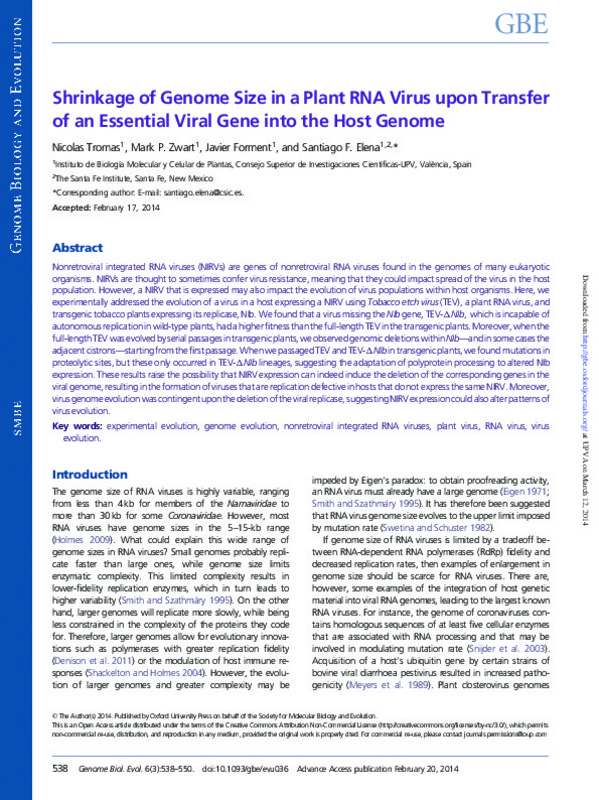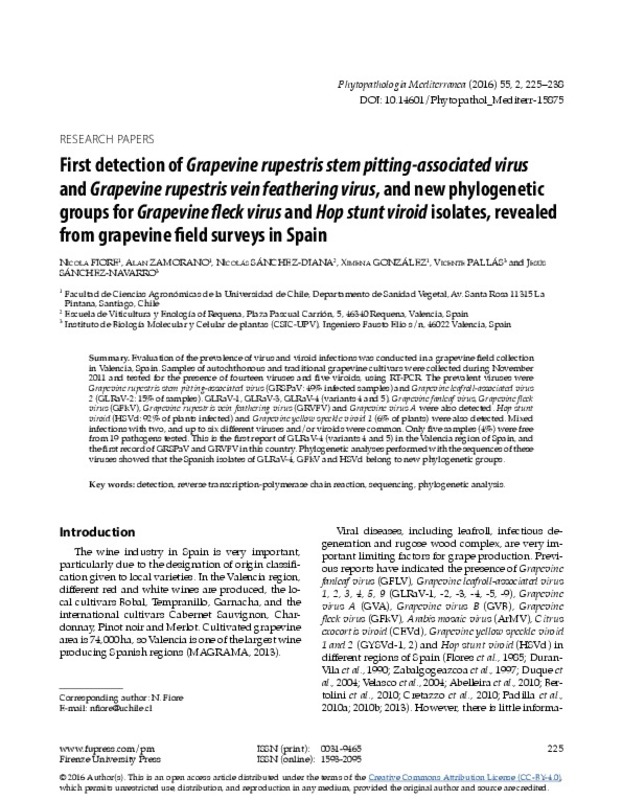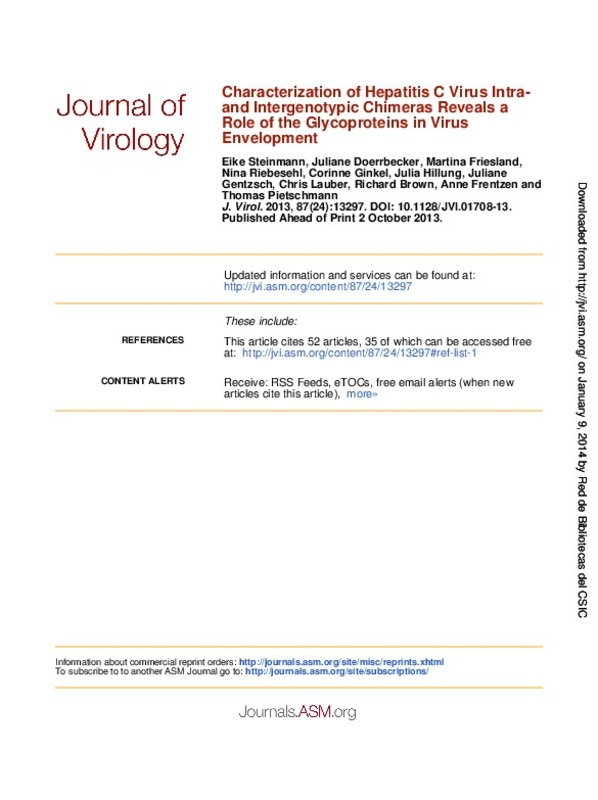JavaScript is disabled for your browser. Some features of this site may not work without it.
Buscar en RiuNet
Listar
Mi cuenta
Estadísticas
Ayuda RiuNet
Admin. UPV
Shrinkage of genome size in a plant RNA virus upon transfer of an essential gene into the host genome
Mostrar el registro completo del ítem
Tromas, N.; Zwart, MP.; Forment Millet, JJ.; Elena Fito, SF. (2014). Shrinkage of genome size in a plant RNA virus upon transfer of an essential gene into the host genome. Genome Biology and Evolution. (6):538-550. https://doi.org/10.1093/gbe/evu036
Por favor, use este identificador para citar o enlazar este ítem: http://hdl.handle.net/10251/64388
Ficheros en el ítem
Metadatos del ítem
| Título: | Shrinkage of genome size in a plant RNA virus upon transfer of an essential gene into the host genome | |
| Autor: | Tromas, Nicolas Zwart, Mark Peter Elena Fito, Santiago Fco | |
| Entidad UPV: |
|
|
| Fecha difusión: |
|
|
| Resumen: |
[EN] Nonretroviral integrated RNA viruses (NIRVs) are genes of nonretroviral RNA viruses found in the genomes of many eukaryotic organisms. NIRVs are thought to sometimes confer virus resistance, meaning that they could ...[+]
|
|
| Palabras clave: |
|
|
| Derechos de uso: | Reconocimiento - No comercial (by-nc) | |
| Fuente: |
|
|
| DOI: |
|
|
| Editorial: |
|
|
| Versión del editor: | https://dx.doi.org/10.1093/gbe/evu036 | |
| Código del Proyecto: |
|
|
| Descripción: |
|
|
| Agradecimientos: |
The authors thank Francisca de la Iglesia, Paula Agudo, and Angels Prosper for excellent technical support, Dr Jose-Antonio Daros for gifting pMTEV, and the Bioinformatics Core Service at the IBMCP for the support provided. ...[+]
|
|
| Tipo: |
|












